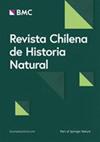The microbial world in a changing environment
IF 1.4
4区 环境科学与生态学
Q3 BIODIVERSITY CONSERVATION
引用次数: 7
Abstract
In this article we would like to touch on the key role played by the microbiota in the maintenance of a sustainable environment in the entire planet. For obvious reasons, this article does not intend to review thoroughly this extremely complex topic, but rather to focus on the main threats that this natural scenario is presently facing. Recent literature survey. Despite the relevance of microorganisms have in our planet, the effects of climate change on microbial communities have been scarcely and not systematically addressed in literature. Although the role of microorganisms in emissions of greenhouse gases has received some attention, there are several microbial processes that are affected by climate change with consequences that are presently under assessment. Among them, host-pathogen interactions, the microbiome of built environment, or relations among plants and beneficial microbes. Further research is required to advance in knowledge of the effect of climate change on microbial communities. One of the main targets should be a complete evaluation of the global microbial functional diversity and the design of new strategies to cope with limitations in methods to grow microorganisms in the laboratory. These efforts should contribute to raise a general public awareness on the major role played by the microbiota on the various Earth ecosystems.环境变化中的微生物世界
在这篇文章中,我们想谈谈微生物群在维持整个地球的可持续环境中所起的关键作用。由于显而易见的原因,本文不打算彻底审查这个极其复杂的主题,而是将重点放在这个自然场景目前面临的主要威胁上。近期文献综述。尽管微生物在我们的星球上具有相关性,但气候变化对微生物群落的影响在文献中几乎没有系统地解决。虽然微生物在温室气体排放中的作用已受到一些关注,但有几种微生物过程受到气候变化的影响,其后果目前正在评估中。其中,宿主与病原体的相互作用,建筑环境中的微生物群,植物与有益微生物的关系。要进一步研究气候变化对微生物群落的影响,还需要进一步的研究。其中一个主要目标应该是对全球微生物功能多样性进行全面评估,并设计新的策略来应对实验室培养微生物方法的局限性。这些努力应有助于提高公众对微生物群在各种地球生态系统中所起的主要作用的认识。
本文章由计算机程序翻译,如有差异,请以英文原文为准。
求助全文
约1分钟内获得全文
求助全文
来源期刊

Revista Chilena de Historia Natural
环境科学-生态学
CiteScore
2.50
自引率
18.20%
发文量
9
审稿时长
>36 weeks
期刊介绍:
Revista Chilena de Historia Natural (RCHN) publishes original research dealing with past and present phenomena from organismic to higher levels of biological organization, considering both empirical and theoretical studies on all kinds of taxa and environments.
The major areas covered by RCHN are: botany and zoology; physiological and behavioral ecology; population biology; community and ecosystem ecology; systematics, biogeography and evolution.
 求助内容:
求助内容: 应助结果提醒方式:
应助结果提醒方式:


